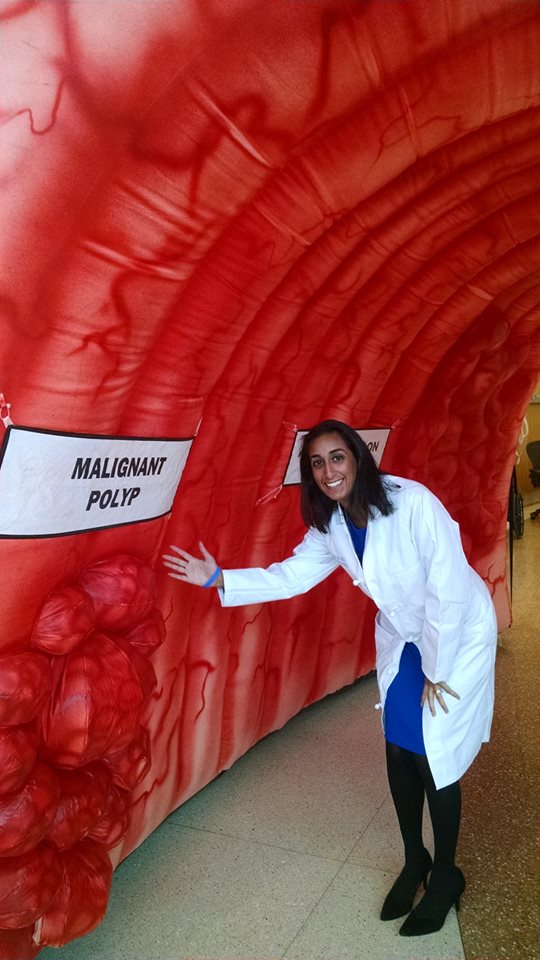While studies have shown that the colonoscopy can reduce the risk of death from colorectal cancer, researchers have also shown that not all people recommended for the test actually get it. To help inform people about colorectal cancer risks and symptoms as well as the benefits of screening, the N.C. Cancer Hospital hosted a public outreach event last Thursday and Friday.

The event was held to coincide with National Colorectal Cancer Awareness Month and in time for the Colon Cancer Alliance’s seventh annual colon cancer awareness day, Dress in Blue Day, last Friday. The event ran from 9 a.m. to 4 p.m. last Thursday and Friday, and featured a larger-than-life, inflatable colon known as “The Strollin’ Colon.”
In addition to the walk-through exhibit, UNC Health Care physicians and other providers were on-hand to answer questions, and there was information about the Colon Cancer Alliance, a national patient advocacy organization. Among other services, the nonprofit partners to offer financial assistance for screening-related costs to people who qualify.
Jenny Hanspal, RN, a nurse navigator with the N.C. Cancer Hospital’s and the UNC Lineberger Comprehensive Cancer Center’s Comprehensive Cancer Support Program and the event’s coordinator, said people’s lives can be transformed by access to information.
“If you catch colorectal cancer early, it’s more treatable,” she said. “And the more that people are aware of the potential risks for colorectal cancer, the fact that it’s a very treatable and preventable disease and that there are organizations in the United States that will help with fees to offset the screening cost, the more they are likely to then take action to get those tests and screening procedures done.”
Colorectal cancer is a disease in which cells grow uncontrollably in the colon or rectum. Both part of the digestive system, the colon and rectum help absorb water and nutrients from food before it passes out of the body as waste.
More than 50,000 people were estimated to have died from colon cancer last year, according to NCI Surveillance, Epidemiology and End Results Program data. But screening for the disease can save lives, said Dr. Seth Crockett, MD, MPH, an assistant professor of medicine at the UNC School of Medicine Division of Gastroenterology and Hepatology.
At its earliest stage when the cancer is still localized, it has nearly a 90 percent five-year survival rate, according to NCI SEER data from 2004 to 2010 on the website.
“At its earliest stages, when it’s asymptomatic, colorectal cancer is detectable and treatable, and we know that screening saves lives and prevents cancer deaths,” Crockett said.
The U.S. Preventive Services Task Force, a panel of experts in prevention and evidence-based medicine, recommends that people get screened for colorectal cancer starting at age 50 using one of three tests.
For people with a family history of the disease, Crockett said it’s recommended that they start screening 10 years before the age of diagnosis of their first-degree relative who had the disease.
The UNC School of Medicine Division of Gastroenterology and Hepatology performs more than 9,000 colonoscopies per year, and has exceeded national performance metrics. A survey of UNC patients found that more than 95 percent of people who had responded between January of last year and March of this year would recommend the program to a friend or family member.
“At UNC, we have a lot of expertise in colon cancer screening,” Crockett said. “Not only do we have three very active screening centers, we have an active research program in colorectal cancer screening and prevention, as well as primary care researchers who study the different screening tests and how they’re used in North Carolina.”
